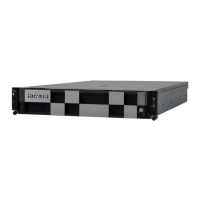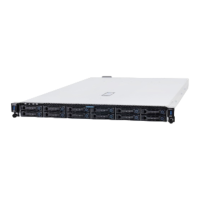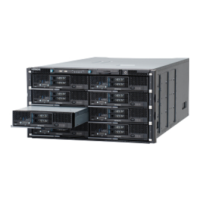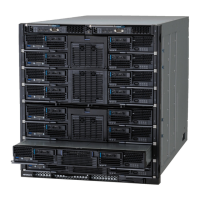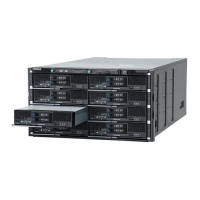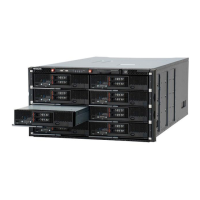Hitachi Advanced Server HA820 G2 User Guide 172
•
Configuring memory options.
•
Launching other preboot environments.
Advanced Server product with UEFI can provide:
•
Support for boot partitions larger than 2.2 TB. Such configurations could previously only be
used for boot drives when using RAID solutions.
•
Secure Boot that enables the system firmware, option card firmware, operating systems, and
software collaborate to enhance platform security.
•
UEFI Graphical User Interface (GUI)
•
An Embedded UEFI Shell that provides a preboot environment for running scripts and tools.
•
Boot support for option cards that only support a UEFI option ROM.
Selecting the boot mode
This server provides two Boot Mode configurations: UEFI Mode and Legacy BIOS Mode. Certain boot
options require that you select a specific boot mode. By default, the boot mode is set to UEFI Mode. The
system must boot in UEFI Mode to use certain options, including:
•
Secure Boot, UEFI Optimized Boot, Generic USB Boot, IPv6 PXE Boot, iSCSI Boot, NVMe Boot
and Boot from URL
•
Fibre Channel/FCoE Scan Policy
NOTE:
The boot mode you use must match the operating system installation. If not, changing the boot
mode can impact the ability of the server to boot to the installed operating system.
Prerequisite
When booting to
UEFI Mode
, leave
UEFI Optimized Boot
enabled.
Procedure
1.
From the System Utilities screen, select
System Configuration > BIOS/Platform Configuration
(RBSU) > Boot Options > Boot Mode.
2.
Select a setting.
•
UEFI Mode (default)—Configures the system to boot to a UEFI compatible operating
system.
•
Legacy BIOS Mode—Configures the system to boot to a traditional operating system in
Legacy BIOS compatibility
mode.
3.
Save your setting.
4.
Reboot the server.
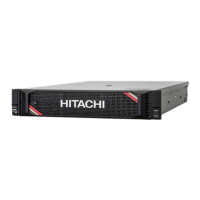
